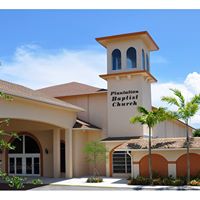|
Lately, my Bible study often involves an indepth analysis of the most common words. For example, the word "should." Take a look at my article about "should" in the translator's resources. Today, I looked at the word "both" in Acts 1:8.
But ye shall receive power, after that the Holy Ghost is come upon you: and ye shall be witnesses unto me both in Jerusalem, and in all Judaea, and in Samaria, and unto the uttermost part of the earth. (Acts 1:8) I was having trouble with the word, because its use seems contrary to "both" the definition of the word and English grammar. The word itself is defined as a connective word that connects two separate things. This is its definition in "both" the Webster 1828 dictionary and a modern dictionary. The Greek word is τε. It is defined as a connective word similar to "and." English grammar demands that the word "both" connect only two items, not three or four. The problem is that in Acts 1:8, the word "both" seems to connect four different items: Jerusalem, Judea, Samaria, and the uttermost part of the earth. If that it true, it seems that "both" is misued here. The New King James translators seemed to have a similar issue, because they simply did not translate τε and left out the word "both." The KJV translators knew Greek thoroughly and they deliberately translated the Greek word this way. So, why is the word "both" there? I always saw Acts 1:8 to be a picture of God's plan for the progress of the gospel. I still see it that way, but it is more than that. It is "both" a plan for the progress of the gospel around the world and a plan for the mission program of each and every local church. I only partially realized that until I looked at the commas. Each item is separated by "both" commas as well as the word "and." This is correct according to English grammar in 1611, but not now. Current grammar says that if you have a list where the items are separated by "and," you need not insert commas. So, I took the commas out and it hit me. I'm not saying the commas should not be there in the KJV. I am simply saying that this is what made me personally understand the teaching of Acts 1:8 better. The word "both" is there, because Acts 1:8 lays before us, not only four increasing expansions of the gospel, but also two categories of evangelism, to which every church should be comitted and involved. The first category is Jerusalem and Judea, the center of the Jewish homeland. The second category is Samaria and the uttermost, which were non-Jewish lands. In other words, it refers to both home and foreign missions. This is the plan for every church. We should be involved in evangelism in "both" our own land and the lands of others. We should be witnessing "both" at home and abroad at the same time. Our missions program should include "both" church planting in our homeland and in foreign lands. Our mission program may have foreign missions, but it is not complete unelss we are involved in and supporting home missions also. -Steve Combs
1 Comment
11/14/2020 06:52:36 pm
Bible study is something that I enjoy doing for sure. I know that there are people who do not think much about it, but I am not like most people. I dedicate my entire life to God, and that is why I will spend my time learning about them. I know that it can be hard to do that, but it is what I put my mind into. I hope that I can do everything I can for it, dude.
Reply
Leave a Reply. |
AuthorMost of the Blog entries are by Steve Zeinner, General Director and Steve Combs, Asst. Director Archives
December 2022
Categories |
|
Donate to
Bearing Precious Seed Global |
A Word from Steve Zeinner, Director
Click picture |
Proudly powered by Weebly
 RSS Feed
RSS Feed

